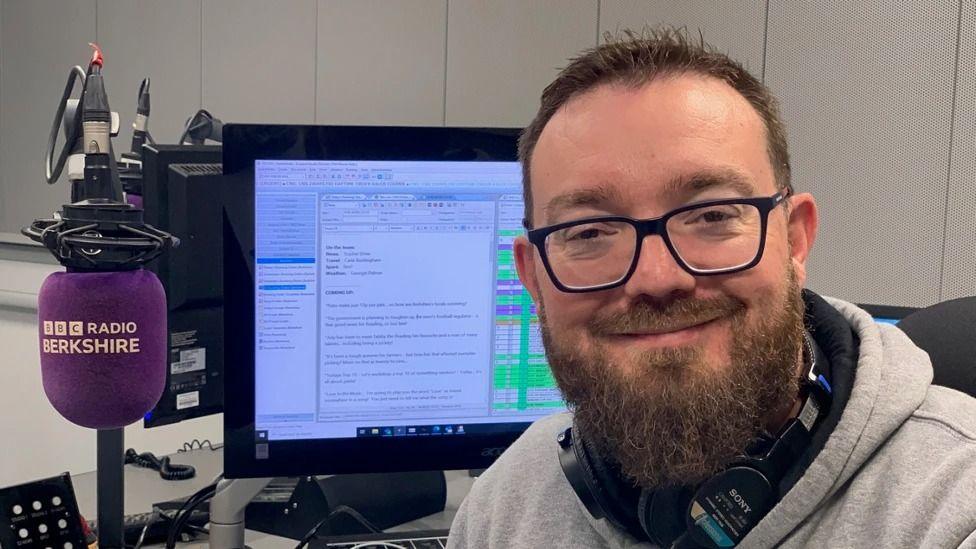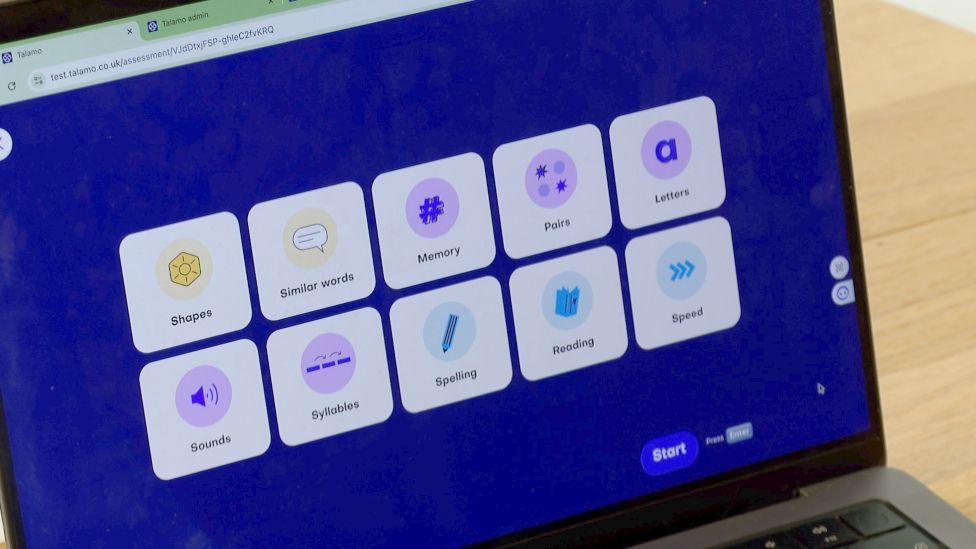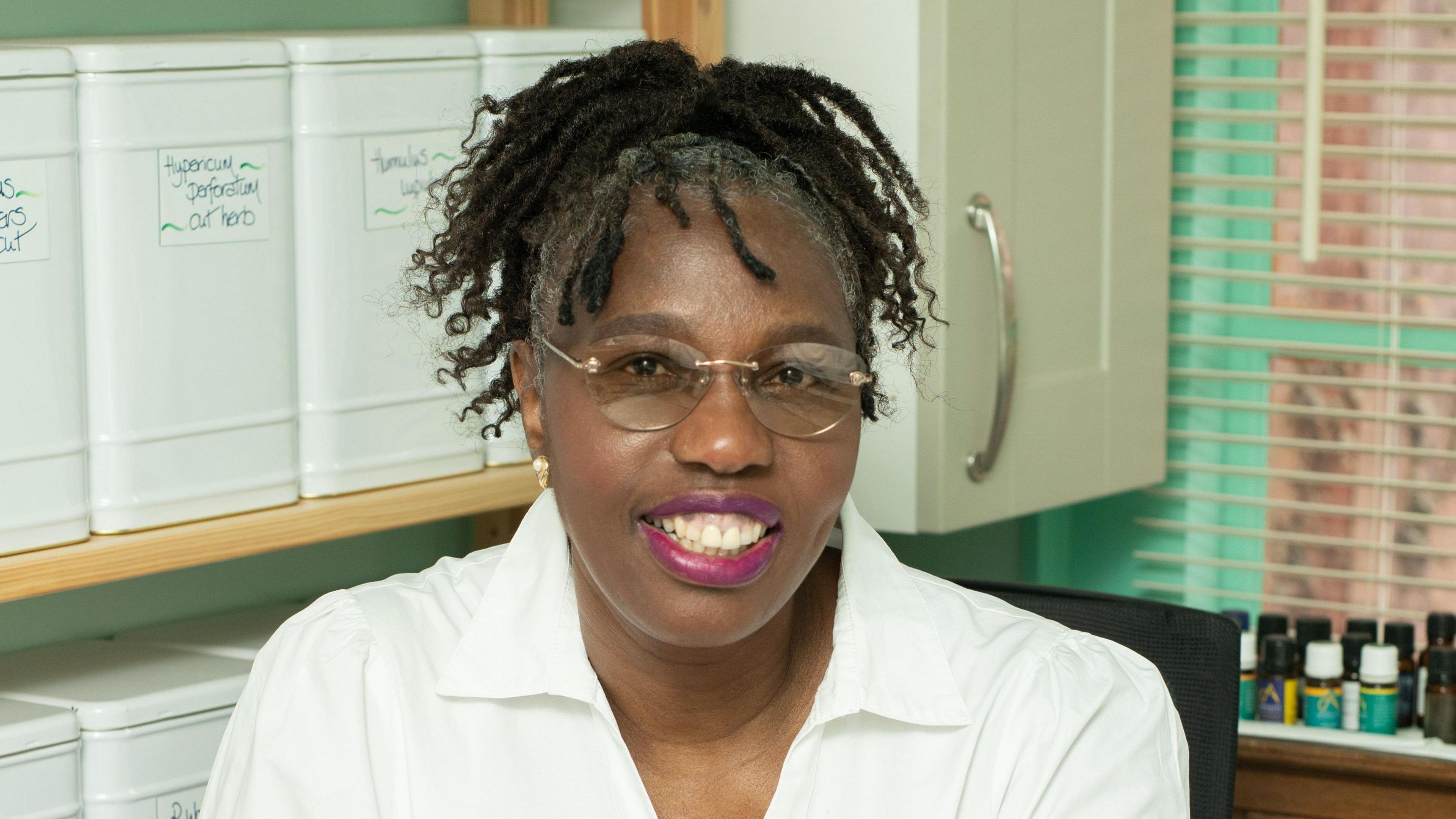Dyslexia diagnosis at 50 'was a feeling of relief'

Phil Mercer presents BBC Radio Berkshire's breakfast show
- Published
Working as a newsreader and a presenter on the radio means I have had to read out loud quite a lot - it's an essential part of the job.
But over the years I'd sometimes struggle with some of the basic stuff like reading the scripts word for word - I'd hit a wall and make really silly mistakes - and it was frustrating.
When I had the chance to have a test for dyslexia at the age of 50, after being inspired by a feature we did on Radio Berkshire, it established that, yes, I was dyslexic.
It was a feeling of relief but also, for anyone struggling like me, a diagnosis can help you better understand yourself.
Looking back to my school days in the 1980s and early 90s, I would often have to work hard to properly understand things, especially with maths and English.
In the end I did very badly at my A-levels, leaving me frustrated with myself and suddenly not really having a life plan.
Back then there wasn't the support or awareness of dyslexia and the impact it could have on a child's education and prospects - things might have turned out differently if there had been.
'Coping strategies'
Luckily I got to muck around doing radio - hospital radio and then AA Roadwatch travel news before joining the BBC in Oxford.
The BBC was great at teaching you the skills you need for journalism. I developed coping strategies - reading scripts many times over, changing breathing techniques, and using a different font that was easier to read.
Like many things, you get along in life and I think I've done alright, even though I was never tested for or diagnosed as dyslexic.
When we featured the Adult Dyslexia Centre in Maidenhead, which helps people who have struggled with growing up with the learning difficulty, I was inspired to take the test.
Having taken the four-hour test with reading and comprehension and cognitive reasoning and recall, I eventually got the certificate confirming dyslexia.
In a way I'm grateful that it shows I'm not stupid - it's a relief to know there is a diagnosable thing that's gone on here.
I think the biggest thing I've learned is that facing a dyslexia diagnosis is not the end of the world and that there are a lot of things that can be done.
One of the things I often struggle with is keeping my eyes focused on the words in front of me and not drifting around.
My assessor suggested going to a behavioural ophthalmologist, who can work out what's going on and even provide specialist glasses that help control the eyes better.
And for anyone having trouble - finding things like job interviews especially tough - and who, like me, has just struggled through, it's worth taking a test.
The difficulties I've had all now make sense.
What is dyslexia?
Dyslexia is a learning difficulty that affects about one in 10 people in the UK, including adults as well as children, according to the British Dyslexia Association (BDA)
If someone has dyslexia, they may have difficulties with their reading, writing or spelling
It does not affect intelligence and it is not a disease or an illness - it is a condition that someone is born with
Government statistics show that 6.3m people in the UK have dyslexia, while one in six adults have the reading level of an 11-year-old
A dyslexia diagnosis is not available via the NHS. It is recognised as a specific learning difficulty and this means it is an educational assessment
A diagnosis can only be made by an educational psychologist who is registered with the Health and Care Professions Council or a specialist teacher with a valid registration
Charities such as the BDA can offer advice for people who want to find out whether they may have dyslexia
Phil finds out if he has dyslexia
Get in touch
Do you have a story BBC Berkshire should cover?
You can follow BBC Berkshire on Facebook, external, X (Twitter), external, or Instagram, external.
Related topics
See also
- Published1 July

- Published13 June
